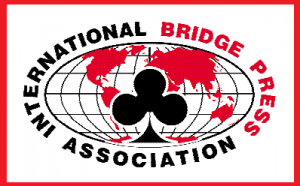 Following is a proposed procedure for handling cheating allegations.
Following is a proposed procedure for handling cheating allegations.
1. The World Bridge Federation, in the same way as it is responsible for the International Laws and for recommending standard procedure for handling infractions and appeals against rulings, should also be responsible for defining and recommending standard procedure for the handling of cheating allegations. These can be defined as allegations so serious that if made public they could open the person making the allegation to legal action. Lesser allegations should be handled under the normal procedure for infractions of Law.
2. The standard procedure should include items such as:
(a) All levels within bridge (club, regional, national, zonal, world) are responsible for appointing a person to whom such allegations should be made in a way that gives as much legal protection to the complainant as local law allows. The appointing body shall be responsible for making that name widely known within its sphere together with the method for making an allegation. It should also make arrangements for receiving the records of the Officer in the event of incapacity or replacement. The post is referred to below as “Ethics Officer”. Note: This procedure is already followed in many clubs for Health and Safety.
(b) At all levels above club level (e.g., regional, national, zonal, world) the regulatory body should appoint an elite player’s commission with the role of receiving allegations forwarded by an Ethics Officer at that level or the next level down to make the decision of whether there is a case to answer. The Commission has the power to seek further evidence (e.g., videos). It must inform the Ethics Officer referring the evidence of its answer. Where this is “no” the complainant(s) are informed by the Ethics Officer but the complaints not released to the person(s) about which the complaints are made. If the answer is (“yes”) the Commission seeks permission of the complainant(s) to proceed within as much legal protection as can be arranged and decides the appropriate level to conduct prosecution. The Commission can require the regulating body to appoint a prosecutor. The Prosecutor must then inform the person that he/she has a case to answer and presents the case to the person. The case is then handled thereafter as prosecution and defence.
(c) Allegations fall into two principal categories: (i) bridge action(s) – those which the person making the allegation believes is evidence of illicit knowledge but for which there is no further external evidence; (ii) non-bridge action(s) (e.g. “I saw him looking at boards he was about to play” or “I overheard in the toilet player A telling player B about a deal he was to play later.”
(d) The allegation should be made to the Ethics Officer nominated for that level, i.e., for a club event to the club-nominated Ethics Officer, for a regional event to the Regional Ethics Officer, etc. In the unlikely event the allegation is about the Ethics Officer him/herself the allegation should be made to the Ethics Officer at the next level up (unless at World level where it should be made to the Ethics Officer at the next level down within the complainant’s own structure).
(e) The person making the allegation should provide, in the case of bridge actions, as much as possible of the following: date, names of players at the table, auction, card layout, play and suspect action. In the case of non-bridge action a statement of what was seen and heard relating to the allegation.
(f) The Ethics Officer has an obligation to: (i) Notify the complainant of date of receipt of the allegation (possibly with a reference number), and a date by which the complainant will have a further reply (ii) keep a record of the complaint even where it is dismissed by that Officer and provide a mechanism to access those records should the Officer be incapacitated or replaced by the appointing body.
(g) The Ethics Officer has an obligation NOT to disclose the allegation to any other person except insofar as the Law of the land requires. If the officer believes the complaint contains no evidence of impropriety, the Officer should reply to that effect, giving reasons (e.g., “the bid or play made was, in my opinion, one of the logical actions expected of that level of player”… but still retain the record of the complaint and answer.
(h)If the Ethics Officer believes the allegation could be evidence but is insufficient in itself to justify “a case to answer” then the Officer must reply to that effect saying the record is maintained and should further evidence come to light, the decision not to refer it a Commission may be reviewed.
(i) If the Ethics Officer believes there is a case to answer the evidence, without names, should be referred to the Players’ commission at the next level up for confirmation as to whether the evidence constitutes a “case to answer”. Then proceed as in (b) above.
Patrick Jourdain
President of IBPA (International Bridge Press Association)
IBPA Bulletin No. 613 February 10, 2016